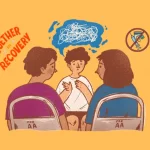
Human services is a range of assistance programs and activities aimed at changing people’s lives for the better, providing them with the support and resources necessary for achieving their full potential.
These organizations work toward identifying and resolving the root causes of different problems that affect people’s physical, psychological, and emotional well-being, enabling them to lead healthy, productive, and fulfilling lives.
In this blog post, you’ll learn more about what human services organizations are, and why they matter.
Behavioral health and mental health are two facets of well-being that are often intertwined, yet they are distinct in their focus. Behavioral health refers to the impact of behaviors on an individual’s overall health and well-being, considering factors such as substance abuse, eating disorders, and other harmful habits.
Mental health, on the other hand, encompasses an individual’s emotional, psychological, and social well-being, addressing issues such as depression, anxiety, and bipolar disorder.
Human services organizations play essential roles in both behavioral and mental health. For behavioral health, they offer services like counseling, addiction recovery programs, and behavior modification strategies to help individuals manage and overcome destructive behaviors.
In the sphere of mental health, these organizations provide services such as psychotherapy, medication management, and supportive community programs to help individuals cope with mental health issues and improve their quality of life.
By addressing both these aspects, human services organizations contribute greatly towards fostering healthier and more resilient communities.
In recent years, there has been a marked shift in the way human services organizations operate, largely driven by societal changes and technological advancements. One notable trend is the increasing use of data analytics to improve service delivery.
With the power of data, these organizations can gain a deeper understanding of their client’s needs, identify gaps in their services, and make informed decisions to enhance their effectiveness and efficiency.
Another trend is the growing focus on collaboration and partnerships. Recognizing that many societal issues are interconnected, human services organizations are increasingly working together, or partnering with other entities such as government agencies, healthcare providers, and educational institutions.
This collaborative approach allows for more comprehensive and integrated solutions, resulting in improved outcomes for clients.
Despite these promising trends, running and managing human services organizations remain complex tasks. They must navigate a myriad of challenges, from funding constraints to regulatory requirements, and often have to do more with less.
Hence, efficiency is paramount. This requires adopting effective management practices, investing in technologies such as electronic health record software that streamline operations, and cultivating a skilled and motivated workforce.
Only then can these organizations truly fulfill their mission of serving an ever-growing list of clients and making a significant impact on their lives.
Here’s the lowdown on what human services organizations are, and why they are so critical in this day and age.
What are Human Services Organizations?
Human services organizations serve vulnerable populations, such as children, the elderly, people with disabilities, substance abusers, and those experiencing poverty, homelessness, mental illness, and domestic violence.
These organizations encompass a diverse range of public, private, nonprofit, and for-profit entities that provide a variety of services, including counseling, education, healthcare, employment and job training, housing, legal assistance, financial support, and community outreach programs.
Why do Human Services Organizations Matter?
Human services organizations play a critical role in society, as they help to improve the quality of life of those in need and reduce the social and economic costs associated with poverty, inequality, and discrimination.
These organizations empower individuals and families to overcome obstacles and reach their full potential, contributing to the development of a more productive and prosperous community.
The Need for Human Services Organizations in Society

Human services organizations are essential to address the underlying causes and consequences of social issues that affect individuals, families, and communities.
They are the backbone of a social safety net, providing support to those who are most vulnerable and at risk of falling through the cracks.
They help to reduce the incidence of homelessness, hunger, and illness, ensuring that everyone has access to basic human needs such as food, shelter, and healthcare.
The Role of Human Services Organizations in Creating Positive Social Change
Human services organizations are crucial to promoting social justice and equality, working to address systemic issues that perpetuate poverty, exclusion, and discrimination.
By advocating for policy changes and influencing public opinion, these organizations help to create a more fair and just society, where everyone has equal access to opportunities and resources.
Recent Research About Human Services Organizations
Research has found that human services organizations have a positive effect on communities. Recent studies in the United States revealed that the presence of these organizations led to an increase in educational attainment among low-income students, contributing to reduced poverty and improved economic stability.
Other research projects in Europe showed that human services organizations contributed to higher life satisfaction among marginalized populations, thus providing evidence for their efficacy in promoting social inclusion and positive mental health.
Moreover, research has also shown that investing in human services organizations is cost-effective and can produce significant returns for society as a whole. The economic impact of these organizations is often overlooked, but evidence suggests that their efforts contribute to improved workforce productivity, increased tax contributions, and decreased healthcare costs.
Career Opportunities in the Human Services Field

If you are passionate about helping others and making a difference in the world, a career in human services may be right for you.
There are a variety of job opportunities available in this field, including social workers, counselors, case managers, program directors, community organizers, advocates, and policy analysts. These positions require a range of skills, including empathy, communication, critical thinking, problem-solving, and teamwork.
In addition to the jobs mentioned, there are several other roles that have a significant and positive impact on human services. Health educators, for instance, play crucial roles in promoting wellness and disease prevention in communities.
Rehabilitation counselors assist individuals with physical, mental, developmental, or emotional disabilities, enabling them to live independently. Substance abuse and behavioral disorder counselors provide support to those struggling with addictions and other issues, helping them recover and lead fulfilling lives.
Furthermore, roles such as grant writers and fundraising specialists are vital in securing the resources human services organizations need to carry out their work.
Lastly, researchers and data analysts help these organizations measure their impact, identify areas for improvement, and make evidence-based decisions. Each of these roles contributes uniquely towards the common goal of improving people’s lives and strengthening communities.
Human services organizations are an integral part of our society, helping to improve the lives of those in need and create a more just and equitable world. These organizations serve as a vital safety net for vulnerable populations and provide essential services that promote health, welfare, and prosperity.
By supporting human services organizations and investing in their work, we can help build stronger, more resilient communities and ensure that all individuals have access to the resources and opportunities they need to thrive.
About The Author:
Stacey Smith is a freelance health writer. She is passionate about writing about women’s health, dental health, diabetes, endocrinology, and nutrition and provides in-depth features on the latest in health news for medical clinics and health magazines.




